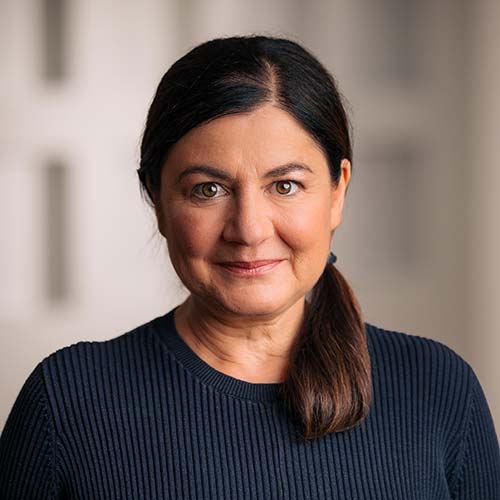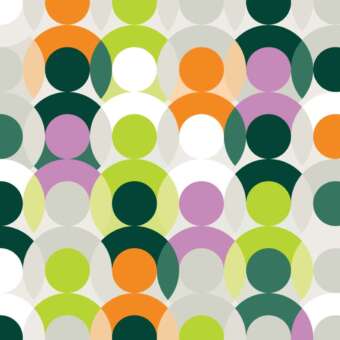For more on the study, see How we really live.
What is the state of democracy in our country? Once again this year, the representative study "How we really live", commissioned by Philip Morris GmbH in collaboration with the rheingold Institute Cologne, provides answers to this important question. In its third edition, the social science study looks at how current challenges, such as the energy crisis and rising inflation as a result of Russia's war of aggression against Ukraine, are influencing Germans' relationship with democracy. It aims to promote an understanding of changing social expectations in order to facilitate productive socio-political dialog.
"The study shows that democracy in Germany is resilient. Despite the major, overlapping crises of recent years, the majority of people in our country support our free and democratic basic order, institutions and political processes," summarizes Claudia Oeking, Managing Director and Director External Affairs at Philip Morris GmbH. "However, the permanent crisis mode is leaving its mark. We should take the warning signs seriously in order to be able to take joint action in politics and society at an early stage and strengthen our democracy."
The study, conducted by the rheingold institute, is based on a two-stage survey design and is representative of the German electorate. In a nationwide survey of 5,252 citizens, questions were asked about satisfaction with the political system and democracy, as well as questions about desired political decision-making processes. The subsequent qualitative survey included 40 psychological in-depth interviews with respondents who showed either strongly populist or strongly expertocratic attitudes.
Many Germans want more democratic co-determination
The results paint a clear picture: more than half of Germans (54%) are currently demanding more attention from politicians. There is a desire for change - 48% demand that citizens should decide on laws in referendums. 29% of respondents would prefer political decisions to be made by independent experts. Elected members of parliament enjoy less trust at 21%. "In these times of crisis, democratic institutions face the challenge of countering populist and expertocratic tendencies within society in particular," says Hans-Joachim Karopka, Managing Director of rheingold.
The quantitative survey examined two attitudes within the German population: Those who want citizens* to decide directly and those who prefer political decisions to be made by experts. The first group (19 percent of Germans) is often attributed populist tendencies and the second (12 percent of the population) expertocratic tendencies. A common denominator among citizens with these attitudes is trust in experts: The question of whether our country would be better governed if these important decisions were made instead of by elected representatives was answered in the affirmative by 85 percent of respondents with expertocratic views and 68 percent with populist views.
Optimization of democratic political decision-making possible
These study results indicate that many respondents know too little about the existing use of experts and the political handling of scientific findings. Within democratic institutions, hearings of the (expert) public and a large number of experts and stakeholders are already part of the political decision-making process. 81 percent of the expertocratically inclined and 63 percent of the populist inclined study participants in the quantitative survey nevertheless believe that a law should be reviewed and approved by scientists before it is passed.
Democracy or a single, objectively best solution?
In the qualitative interviews, several respondents also emphasized the supposed neutrality of experts' recommendations for action vis-à-vis politicians and expressed the desire for a single, objectively best solution to social problems. In this context, the impression often arose that politics in Germany is too ideologically driven and that politicians are more interested in their own success than in making the best decisions for the country.
The results of the third edition of the rheingold institute's study suggest that politicians need to communicate their motives and considerations even more strongly in order to make their decisions more comprehensible in the course of the political negotiation process. In this way, the understanding of citizens in Germany for our representative democracy could grow again. For politicians, political communication means a high degree of transparency, explanation and responsiveness to citizens - especially when it comes to difficult and controversial issues.
"The world is changing - and this does not stop at the needs of citizens in relation to political decision-makers in Germany. We want to counteract the increasing divide in society that many people perceive, especially the divide between politics and society, and use the findings from our study to make an active contribution to a constructive, future-oriented dialogue," emphasizes Claudia Oeking.
Four recommendations for action by the rheingold institute
- Defending the intrinsic value of politics: According to the results of this year's edition, it could be made clearer that negotiating different points of view is one of the central and essential strengths of democracy. Also and especially in crises.
- Pointing out alternatives: According to the data, it should be communicated even more transparently what alternatives there were to the final decision - and why these were rejected at the end of the political negotiation.
- Understanding of science: The data on expertocratic tendencies in particular show that it could be communicated more clearly that experts - especially from different disciplines - can have different, sometimes contradictory opinions and therefore make different recommendations that need to be weighed up against each other.
- Strengthening visibility and comprehensibility: Accordingly, it can be communicated more clearly that there are many ways to participate in and inform about political processes in Germany.
Strengthening democracy by promoting knowledge-based dialogues
Philip Morris Germany is convinced that business has a duty to contribute to our democracy and its institutions, to promote political education and to strengthen civic engagement. Philip Morris has been promoting the idea of corporate responsibility for a free society and a stable democratic system for several years now as part of an expanded understanding of responsibility, the principle of Corporate Democratic Responsibility.
In addition to the "How we really live" study series, the company is also involved in other socio-political projects. This year, for example, the Power for Democracy Award initiated by Philip Morris will once again be presented. The prize, worth a total of 60,000 euros, is awarded to projects, organizations and initiatives that make a contribution to promoting and strengthening democracy through their commitment. And now in its sixth year, The Power of the Arts Award is aimed at promoting democratic diversity, integration and inclusion through art and culture.
About the study
Since 2020, the "How we really live" study in collaboration with the rheingold Institute in Cologne has focused on various phenomena that can be used to empirically examine problematic developments in terms of democratic theory and to sharpen our understanding of these developments. Philip Morris Germany wants to strengthen a solution-oriented discourse that advocates democratic values and tolerant coexistence in Germany.





